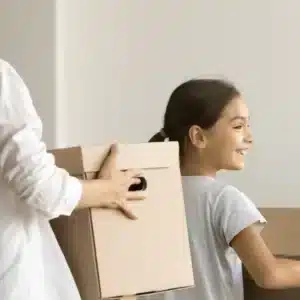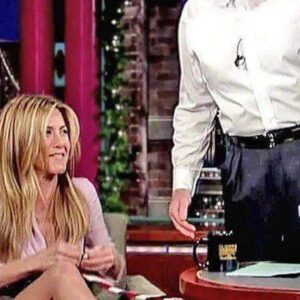From the second I held Mary-Ann in my arms, I knew I would do anything for her.
She was so small, so warm, and so full of promise that it took my breath away. That day, I silently vowed that I would always protect her. Love her. Show up—no matter what.
And I did. Through every scraped knee, every bedtime story, every ballet recital. Her father Ben and I split when she was eight, but we agreed on one thing—we’d never stop being parents.
He never backed away. Not even after Jessica entered the picture.
Jessica was polite, polished, and perfectly pleasant. But I saw through the brittle smiles and icy eyes. She didn’t see Mary-Ann as her own. Not really. She saw her as a reminder.
Still, I stayed silent. I was the ex. People expect the ex to complain.
For years, we made it work. Mary-Ann thrived. And then she turned fourteen—and overnight, my sunshine girl became a stranger.
Suddenly, I couldn’t say anything right. Her favorite meals became “gross,” and hugs became “cringe.” She started skipping class, lying about where she’d been, disappearing at night.
I set rules. She slammed doors. I reached out. She pushed me away.
One night, after yet another screaming match, I stood in the hallway outside her locked door and felt something inside me crumble.
Maybe I wasn’t enough.
So I turned to Ben.
“She’s spiraling,” I told him. “She needs both of us now. Not just weekend visits and birthday presents.”
Ben shrugged. “She’s just being a teen.”
“She’s sneaking out at night,” I hissed. “She’s hanging with older kids. This is serious.”
“Jessica says this is normal,” he replied. “We shouldn’t smother her.”
That was the moment I realized Jessica had more influence than I’d thought. And she didn’t understand the first thing about being a mother.
Then Mary-Ann walked in, her face lit up with a dangerous kind of joy.
“Jessica got me a motorcycle!” she beamed.
Ben just smiled, like it was a puppy.
“For her fifteenth birthday,” he added proudly.
I was stunned. “You bought her a motorcycle without even asking me?”
“She’s old enough to ride,” Jessica said with a too-sweet smile. “She’ll be careful.”
“She’s a child!” I snapped. “And I’m her mother.”
Mary-Ann exploded. “You’re always trying to ruin everything! Jessica listens to me! I want to live with them!”
It felt like someone had reached inside me and ripped my heart in half.
Ben hesitated—then agreed. Jessica even forced a smile and nodded, but her jaw twitched.
I left, trying to keep my spine straight, but I cried the whole drive home. My daughter didn’t want me anymore.
Still, I watched from a distance. I called Ben. I asked how she was doing. I checked Instagram, just to see her smile. It hurt—but it was better than not knowing anything at all.
Then came her birthday.
I baked her favorite cake—chocolate with peanut butter frosting—and bought her the drawing tablet she’d dreamed about for months.
Just as I was about to leave to surprise her, Ben called.
“She doesn’t want you there,” he said. “She’s having dinner here and then going out with her friends. We’ll make sure she gets the gifts.”
The words stung like frostbite.
But I couldn’t stay away.
I found the address of the party through her friends’ social media and drove over. The scene that greeted me stopped me cold.
Mary-Ann was riding her new motorcycle in the middle of a residential street—giving her friends turns. No helmet. No supervision.
“Mary-Ann!” I shouted as I got out of the car.
Her eyes widened. “What are you doing here?!”
“I wanted to give you your present. But what is this?! You don’t even have a license!”
She rolled her eyes. “We’re just having fun. Chill.”
“This isn’t a joke!” I snapped. “Does your father know?”
“Jessica said it was fine.”
“She’s not your parent.”
“She’s better than you!” she yelled.
Those words—those four syllables—cut deeper than any blade.
“Go home!” she screamed. “You ruin everything!”
I turned, tears blinding me, and drove off. I texted Ben about what was happening. No response. Not for hours.
I sat at home, numb with fear and heartbreak, replaying every second. And then my phone rang.
“Mom,” Mary-Ann sobbed on the other end. “Come get me.”
I didn’t ask questions. I just grabbed my keys and drove.
She was sitting alone on the side of a dark road, her arm twisted at a strange angle, her face pale.
Her friends had left.
“I tried to do a trick… I fell,” she whispered.
I wrapped my arms around her and held her like I used to, rocking gently. “I’ve got you,” I said. “I’m here.”
At the hospital, the doctor said it was a clean break. A minor concussion. She’d be okay.
On the way home, I asked, “Do you want me to take you to your dad’s?”
She shook her head. “I want to go home. With you.”
She was quiet for a while before she whispered, “Jessica didn’t answer. When I finally reached her, she said she had a manicure. Then she said I should get used to not depending on them. Because of the baby.”
She broke down in tears. “She said there won’t be space for me anymore.”
I pulled over and held her.
“You’ll always have space with me,” I whispered. “Always.”
“I’m sorry, Mom. For everything,” she sobbed.
“And I’m sorry for not realizing how lost you felt,” I said softly. “But you don’t have to be strong all the time. You can be my little girl again—just for today.”
“Can we get ice cream?” she asked, wiping her eyes. “And watch cartoons like we used to?”
I smiled through my tears. “Of course. I even got you that drawing tablet you wanted.”
She gasped. “You remembered?”
“I always remember, baby.”
That night, we curled up with ice cream and cartoons. And for the first time in a long time, she rested her head on my shoulder like she used to. Her casted hand held mine.
And in that still, warm quiet—nothing else mattered.





